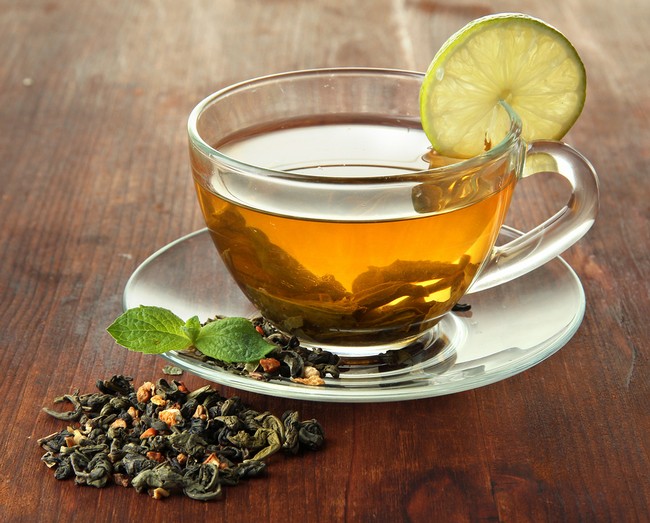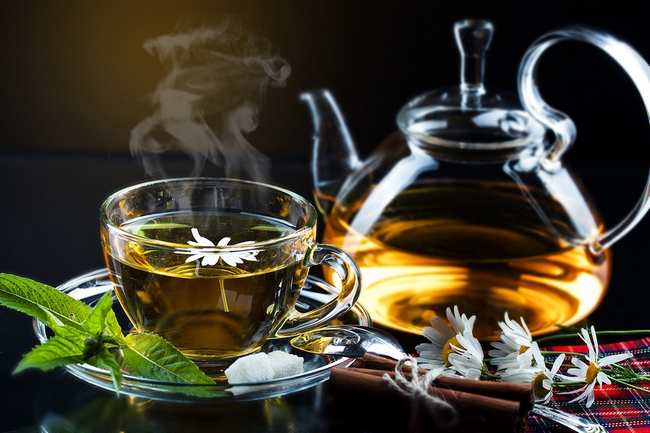- Make It Yourself Lavender Heart-Shaped Bath Bombs!
- 20 Things You Never Knew About “Down There”
- 12 Best Foods For Those Suffering From Arthritis Pain
- 12 Personal Hygiene Mistakes Almost Everyone Makes (Mom Never Told You About #4!)
- 15 Medicinal Plants And Herbs From The Cherokee People
- 12 Mind-Blowing Benefits Of Drinking Coconut Water During Pregnancy
- 12 Outstanding Winter Foods That Won’t Fatten You Up Like A Christmas Turkey
Green Tea Can Reduce the Risk of One Type of Killer Cancer

Photo credit: bigstock
If it seems like you’ve been hearing about the health benefits of green tea every time you turn around, there is good reason for it. This might very well be the healthiest drink known to mankind! Many people believe that green tea, as well as its extracts, have great promise as a possible treatment for cancer but, up until now, scientists have never been quite able to identify exactly how green tea helps to reduce the risk of developing cancer.
In a study published online, researchers from the Los Angeles Biomedical Research Institute at Harbor-UCLA Medical Center, explain exactly how an active ingredient in green tea actually changes the way cancer cells metabolize.
A powerful antioxidant in green tea called EGCG (epigallocatechin gallate) affects the enzymes that are critical to pancreatic cancer cells. Researchers discovered that EGCG interrupts the cellular metabolic process of this cancer. Earlier studies showed that EGCG induced cell death in pancreatic cancer.
Metabolism is something that occurs in all cells that extract and then use energy. This keeps cells alive, multiplying, and growing. This process works for both normal cells and cancer cells. EGCG interrupts the metabolic process.
Various other studies have shown that EGCG can also:
- Prevents the growth of triple negative breast cancer cells
- Restricts androgen independent prostate cancer
- Prevents the growth of cervical cancer cells
- Shows it can restrict the activity of colorectal cancer cells
Continue to Page 2

Photo credit: bigstock
The best way to get your EGCG is by drinking green tea, just be sure you drink freshly brewed tea. Store bought bottled or canned green tea has little or no nutritional value, not to mention these beneficial antioxidants. Decaffeinated green tea contains much less of these protective antioxidants as well. Don’t worry about the caffeine as it’s very low, only about 20mg per cup. Coffee typically has 80mg per cup.
There are other foods that contain EGCG, but in lesser amounts. Apples are also rich in EGCG, especially Fuji apples. One Fuji apple has as much as 6.26mg of EGCG. Blackberries are another good source with more than 7mg of ECGC per 100 grams of berries. Chocolate and Red wine are also good sources. Peanuts, peaches, plums, onions, raspberries, and strawberries have trace amounts of EGCG.
Besides interfering with pancreatic cancer, other studies show that drinking green tea can lower the risk of stomach and other types of digestive cancers in women. Another study published in 2012 showed the EGCG that was directly added to tumors intravenously, had them shrink considerable or disappear within one months’ time.
Researchers say that this discovery means that doctors can now look at the body’s metabolism in a whole new light. It’s not just glucose in and energy out. Scientists now understand more about how cancer cell metabolism can be interrupted. This means that scientists might soon be able to prevent or alter the way cancer grows. Knowing how green tea’s active compound could prevent cancer will open the door to an entirely new means of cancer research and possibly help scientists to understand how certain foods can help us in the fight against cancer.
Source:
(By the way, if you’re enjoying this article, you may want to subscribe to the Naturalon’s free newsletter; get breaking news alerts on GMO’s, fluoride, superfoods, natural cures and more… You privacy is protected. Unsubscribe at any time.)

































